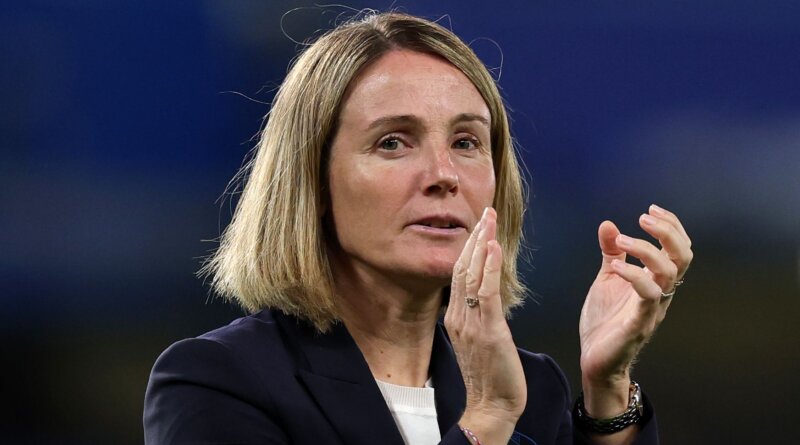Bompastor Slams Gender Bias in Chelsea Manager Interview
Chelsea manager Sonia Bompastor has spoken out about the ongoing challenges women face in football management, revealing that she was forced to answer a highly inappropriate question during her hiring process—a question she says would “never be asked” of a man. Despite leading Chelsea to a historic domestic treble last season, Bompastor continues to face gendered scrutiny that undermines her achievements in the Women’s Super League (WSL).
Chelsea Manager Sonia Bompastor Confronts Stereotypes
Chelsea manager Sonia Bompastor’s journey to the top of women’s football is marked by resilience and exceptional leadership. Taking the helm at Chelsea, Bompastor guided the club to an unprecedented treble, cementing her reputation as one of the most successful coaches in the WSL. However, her experience off the pitch has highlighted persistent double standards in the sport.
During a recent interview, Bompastor revealed that she was asked whether she could handle the demanding role of Chelsea manager while also being a mother of four. “It’s an outrageous question,” Bompastor remarked. “You would never ask a man in my position if he could manage both family and professional responsibility.” Her comments shine a light on the unique pressures faced by female managers and the outdated stereotypes that continue to pervade even top-tier football clubs.
Impact on Women’s Football and the WSL
The incident involving Chelsea manager Sonia Bompastor has stirred conversation across the Women’s Super League. Many players, coaches, and fans have rallied in support of Bompastor, emphasizing that gendered questions like these undermine the progress women’s football has made in recent years. As the WSL grows in stature and viewership, leaders like Bompastor play a crucial role in challenging societal norms and advocating for equality.
Balancing Family and Football: Double Standards Exposed
Bompastor’s experience is not unique. Female managers across Europe frequently encounter assumptions about their ability to juggle family commitments with the demands of professional football. In contrast, male counterparts rarely, if ever, face similar interrogation. This double standard exemplifies the hurdles that still exist for women in football management, even at the highest levels.
Progress and Change in the Women’s Super League
Chelsea manager Sonia Bompastor’s willingness to address these tough topics openly is helping to drive change within the Women’s Super League and the broader footballing community. Fans and advocates hope that increased awareness will lead to fairer hiring practices and more supportive environments for women in leadership roles. For more news and updates on the evolving landscape of football, visit for more news.
Bompastor’s Legacy Beyond the Pitch
Beyond her tactical acumen, Bompastor’s candidness about her experiences sets an example for current and future managers. Her advocacy for gender equality, as well as her focus on results and professionalism, are helping pave the way for a new generation of female coaches. With Chelsea preparing to face West Ham United Women on September 28, all eyes will be on Bompastor not just for her strategy, but for her ongoing efforts to challenge and overcome bias in the sport.
Opinion: Time for Football to Move Forward
It is disappointing, though unsurprising, that such outdated and inappropriate questions persist in the modern game. Sonia Bompastor’s determination and transparency highlight both the progress women have made in football and the work that still needs to be done. True equality will only be achieved when all managers, regardless of gender, are judged solely on their professional merits and results. Until then, voices like Bompastor’s remain essential in calling out discrimination and inspiring change across the sport.
Your global gateway to nonstop football coverage:
News Goal
Share this content:
